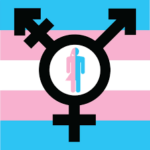The journey of gender identity can be complex and deeply personal, particularly for those who identify as MTF (male-to-female) transsexuals. This article aims to provide a comprehensive overview of what it means to be an MTF transsexual, including various aspects of the transition journey, hormone therapy, surgical options, social dynamics, legal rights, myths, and resources. By exploring these topics, we hope to shed light on the experiences and challenges faced by MTF individuals and foster greater understanding in society.
Understanding MTF Transsexual: A Quick Overview
MTF transsexuals are individuals who were assigned male at birth but identify and wish to transition to a female gender identity. While gender identity and sexual orientation are separate concepts, many people often confuse them. An MTF transsexual’s journey is typically marked by the desire to live authentically as a woman, which can involve various steps, including social, medical, and legal changes.Mtf Hrt First Effects
Understanding the terminology is essential. The term "transsexual" specifically refers to individuals who pursue medical transition steps, including hormone therapy and surgeries, to align their physical bodies with their gender identity. This is part of a broader spectrum that includes transgender individuals who may not choose medical interventions. Recognizing this diversity is crucial for fostering acceptance and support within society.
The Transition Journey: Steps and Considerations
The transition journey for MTF transsexuals can vary widely from person to person. It often begins with self-discovery and a desire to express one’s true gender identity. Many individuals start by coming out to themselves and then to trusted friends and family. This stage can be both liberating and daunting, as it can lead to a range of reactions from acceptance to rejection.
Once a person decides to transition, they may consider various steps, including social transitioning—changing one’s name, pronouns, and presentation to align with their gender identity. Some individuals may also engage in medical transition processes like hormone therapy and surgeries. It’s important to approach this journey thoughtfully and seek guidance from healthcare professionals who are knowledgeable about transgender health.
Hormone Therapy: What MTF Transsexuals Need to Know
Hormone therapy is a critical component of the transition for many MTF transsexuals. It typically involves taking estrogen, which promotes the development of secondary female sexual characteristics such as breast growth, softer skin, and changes in fat distribution. Anti-androgens may also be prescribed to suppress male characteristics, leading to a more feminine appearance.
Before starting hormone therapy, individuals should undergo a thorough evaluation by a healthcare professional who understands transgender issues. This assessment generally includes discussions about the expected effects, potential side effects, and long-term implications of hormone therapy. It’s essential to have realistic expectations and understand that each person’s body may respond differently to treatment.
Surgery Options: Choosing the Right Path for You
Surgical options are an important consideration for many MTF transsexuals, with procedures varying based on individual needs and desires. Common surgeries include breast augmentation, orchiectomy (removal of the testicles), and vaginoplasty (creation of a vagina). These surgeries can significantly enhance physical alignment with one’s gender identity and improve overall mental well-being.
It’s crucial for individuals to thoroughly research and consult with qualified surgeons specializing in transgender surgeries. Factors to consider include the surgeon’s experience, surgical techniques, recovery time, and potential risks. Ultimately, the decision to undergo surgery is deeply personal and should align with one’s overall transition goals and comfort level.
Social Aspects: Navigating Relationships and Acceptance
Navigating social relationships can be one of the most challenging aspects of being an MTF transsexual. The transition process may lead to changes in relationships with family, friends, and acquaintances. Some individuals find that the transition strengthens their bonds with supportive loved ones, while others may face rejection or discrimination from those who struggle to understand their journey.
Building a supportive network is vital for emotional well-being during this time. Many MTF individuals find solace in connecting with others who share similar experiences. This can include joining local LGBTQ+ groups, online communities, or support networks that focus specifically on transgender issues. Finding acceptance and understanding can make a significant difference in the overall transition experience.
Legal Rights: Understanding Your Protections and Options
Legal rights for MTF transsexuals can vary significantly depending on where one lives. Many regions have made strides toward ensuring protections against discrimination based on gender identity, but gaps still exist. Understanding local laws regarding name changes, gender marker updates on identification documents, and anti-discrimination policies is critical for navigating the legal landscape.
For those looking to change their legal documents, the process can involve submitting specific forms, providing documentation from healthcare providers, and sometimes attending court hearings. It’s advisable to consult with legal experts in transgender rights to ensure a smooth process and to understand your rights fully.
Common Myths About MTF Transsexuals Debunked
There are numerous myths surrounding MTF transsexuals that contribute to misinformation and stigma. One common misconception is that all transsexual individuals want to undergo surgery, which is simply not true. Many individuals may choose to transition socially or medically to varying degrees, and their choices should be respected regardless of societal expectations.
Another myth is that being transgender is a phase or a trend, which undermines the real experiences of those who have navigated their gender identity over many years. Gender identity is an inherent aspect of a person’s identity, not a fleeting trend. Education and open conversations are crucial in breaking down these misconceptions.
Resources and Support: Finding Your Community Online
Finding community and support is essential for MTF transsexuals navigating their journey. The internet has become a valuable resource for connecting with like-minded individuals, sharing experiences, and accessing information. Websites, forums, and social media platforms provide safe spaces for trans individuals to seek advice, share their stories, and find emotional support.
Additionally, organizations like the Human Rights Campaign, GLAAD, and local LGBTQ+ centers often have resources specifically tailored for transgender individuals. These resources can include information on healthcare access, legal rights, mental health support, and social groups, ensuring that MTF transsexuals can find the help they need and connect with others who understand their journey.
Being an MTF transsexual is a multi-faceted journey that encompasses various aspects of life, including medical, social, and legal dimensions. Understanding the intricacies of this experience is crucial for fostering acceptance and support within society. By addressing the unique challenges faced by MTF individuals and dispelling common myths, we can contribute to a more inclusive world. If you or someone you know is navigating this journey, remember that there are resources and communities available to provide guidance, understanding, and camaraderie.


